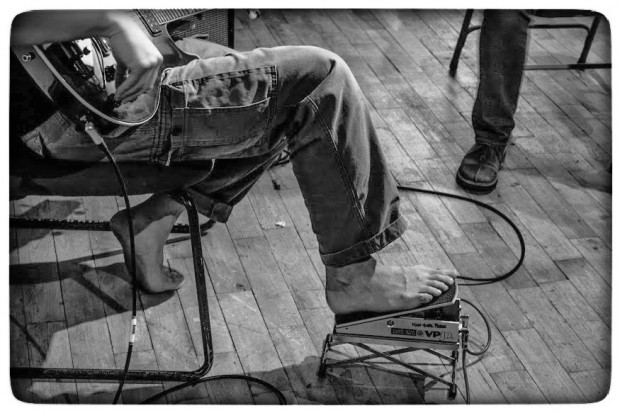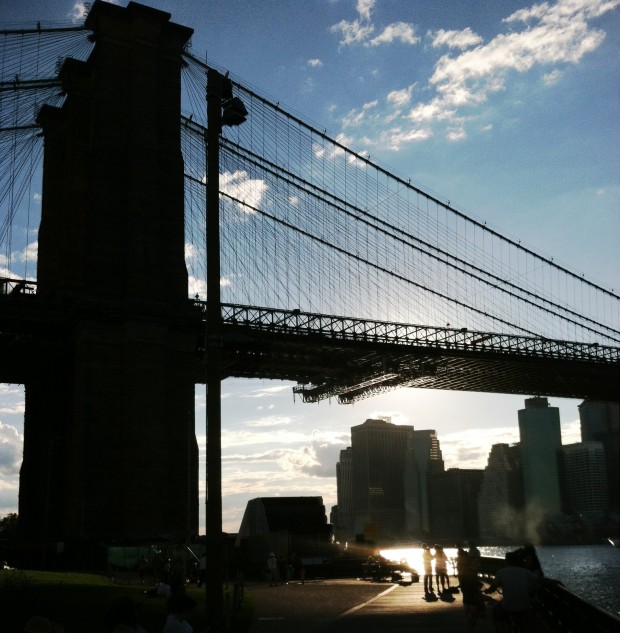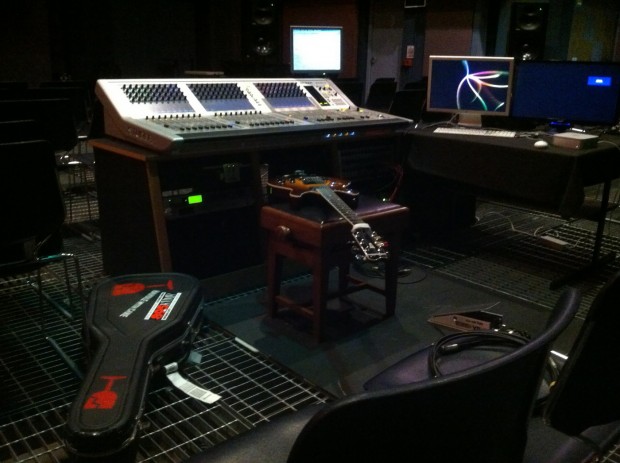Previte: “I’m a bit of a mongrel.” #isim2014
…and w/ that simple statement, is not the enterprise of Cross-Cultural Improvisation nuked? #isim2014
More tweets from an institutionally unaffiliated, sometimes teacher, amateur scholar and anthropologist [a previous twitter transcript…]. Below is an unedited transcript of my observations from ISIM: Cross-Cultural Improvisation III. My original observations came in the form of live tweets via @hanearlpark that spanned the opening ceremony on June 5, the conference plus performances between June 6 and 8, plus some post-event reflections.
My questions and observations are indebted to discussions with @AndreaWolper, @jkais, @nickreynoldsatw, @MarkImprov, @drmelmarshall and @coreymwamba both on- and off- the twitterverse.
My rants, however, are entirely my own
Twitter transcript (unedited)
Opening Ceremony: New York, June 5, 2014
→ Heading to the #isim2014 opening ceremony. (‘Ceremony’ sounds so ostentatious. Conference folk, seriously…)
→ After my comments about #diversity and #rsa2014 & #amspittsburgh, was ready to be disappointed by #isim2014. Better, maybe, but not perfect.
→ Fewer suits and lighter makeup at #isim2014 compared to #rsa2014 & #amspittsburgh. #amateuranthropology
→ Is the ‘global village’ still a possibility? What violence hides behind such an idea? #isim2014
→ Can we imagine a global village achieved w/out violence? w/out the erasure of difference? #isim2014
→ There’s an interesting evocation of a kind of futurism in a lot of improvisative traditions. #isim2014
Conference: New York, June 6, 2014
→ 3pm: #noise #melody #rhythm #contrast #serendipity #contradiction from Eris 136199 w/ @DoctorNerve @CatherineSikora @ @ISIMprov. #isim2014
→ Cognition vs embodiment. #isim2014
→ Is cognition a form of computation? Is embodiment a form of (physical) computation? #isim2014
→ Is a successful improvisation (always) narrative? #isim2014
→ This reminds me of Paul Berg’s algorithmic composition class… #isim2014
→ …either you create a process that creates desirable results, or one that creates noise that is selectively filter. #isim2014
→ Doesn’t (biological) evolution depend on the environment? Doesn’t musicality depend on the (cultural) environment? #isim2014
→ GenJam: the worst thing to happen to machine improvisation? #discuss #isim2014
→ Unasked question: how an improviser tries to make the rest of the band sound good. #isim2014
→ Unasked question: how individual desires (goals) collide to provide long-term formal structures (retroactively). #isim2014
→ …in this context, concentrating on individual intention may be missing the bigger picture. #isim2014
→ Problem w/ the Turing Test in creative contexts is that ‘I know it when I see/hear it’ ends up as a mirror of ‘does it swing’ #isim2014
→ Can we discuss rhythm w/out engaging w/ embodiment? #isim2014
→ History = cultural context = environment in which evolution takes place? #isim2014
→ At what point does cooperation & competition diverge in improvisative performance? #isim2014
→ …or is that a false dichotomy? are those terms meaningless in the context of improvisative play? #isim2014
→ Why are so many musicians so assured when idiomatic pressures are unambiguous, but uncertain when not? #isim2014
→ …is freedom that scary? #isim2014
→ …we know how to be a cog in the machine when the machine tells us to be? #isim2014
→ …we know our role/place/function in the ensemble if it’s prescribed for us? #isim2014
→ Is trans-idiomatic musicality a reflection of a kind of white middle-class mobility? #isim2014
→ …After trans-idiomatic meetings are (white) self-identified non-idiomatic musicians able to see idiom in their own playing? #isim2014
→ …are trans-idiomatic meetings by definition colonial? #isim2014
→ “No way to control what’s coming through your ears.” #isim2014
→ Ah, the sound of my circulation system. #isim2014
→ Can improvisation be about your ‘actual experience’ divorced from ‘thinking’? #isim2014
→ …in contrast, earlier presentation modeled improvisation exclusively as a ‘cognitive’ process. #isim2014
→ …why these simplifying assumptions in the context of something as complicated and human as improvisative play? isim
→ What’s possible given circumstances/resources = improvisation? #isim2014
→ …but what is the relation btwn this and the black american composer-improviser tradition? #isim2014
→ …Braxton said if you don’t compose this piece (for 276 accordions, say), then you will never hear it. #isim2014
→ After Lacy: “what’s alive for you?” #isim2014
→ …which is fine as far as it goes, but can we further unpack ‘aliveness’? #isim2014
→ ‘Trust,’ ‘courage,’ ‘openness,’ all terms we use to talk about improvisation. We should unpack these. #isim2014
→ Reminded of Braxton’s commend about how freedom is knowing your context well enough so that……… you. are. free. #isim2014
→ Oh, reminded how my skills as an improviser are so, so, so pathetic. #isim2014
→ I want more talk of noise and frenzy. #isim2014
→ I desire a discussion of collisions, contradictions, the unintelligible, the unspeakable. #isim2014
→ Where is improvisation, the destabilizing, the revolutionary, the dissonant, the dissenting? #isim2014
→ Part of me (uncharitably for sure) want to scream ‘f*ck calm.’ #isim2014
→ Goddamnnit. I am Asian, and I will not be your model of calm and reserved. #isim2014
→ Wadada: “try to find something unique in yourself.” #isim2014
→ …don’t try to fit in. #isim2014
→ …“I don’t want them to expect nothing!” #isim2014
→ Is ‘experience’ (unlike, say, subjectivity) (always) a term of resistance? #isim2014
→ ‘Compliment’ or ‘contradict’; what do these terms _mean_ in the context of improvisative play? #isim2014
→ …we seem to be struggling because we (think we) know the ‘correct’ terms to use. #isim2014
→ What does the term ‘pattern’ mean in the context of improvisative play? #isim2014
→ …can ‘pattern’ every be an enabling discursive element in the context of creative music? #isim2014
→ Often wonder if I should (get back to) playing more (overtly) melodic. #isim2014
→ Reminded of experiments about the different perceptions of musical construction depending on idiomatic background. #isim2014
→ …are not cultural misunderstandings so much more interesting than (ostensibly) clear channels of communication? #isim2014
→ ‘notes’; if we just jettisoned that term, our understanding of musical practices would be so much richer. #isim2014
→ Some additional insight if you understand both English and 한국말. #isim2014
→ Are terms such as ‘discipline’ and ‘pattern’ (discursively) limiting in the contacts of improvisative play? #isim2014
→ Reminded of Wadada once saying that when he puts his horn to his mouth, it’s a command. #isim2014
→ Previte: “I’m a bit of a mongrel.” #isim2014
→ …and w/ that simple statement, is not the enterprise of Cross-Cultural Improvisation nuked? #isim2014
→ The unresolved contradiction btwn agency and sublimation? #isim2014
→ #isim2014 http://t.co/bypjiQMRiS
→ how much of my views/practices are shaped by my teachers; how much convergence of approach because of who I chose as teachers? #isim2014
→ “Social aspects of musicality.” #isim2014
→ …an enormous amount of stuff blackboxed in that statement. #isim2014
→ ‘Leading’ and ‘following’; do these terms have any utility in the context of improvisative play? #isim2014
→ “Where was I going?” (unintentionally?) good description of what we are doing. #isim2014
→ …Something I learned when I started teaching improvisation was the utility I jettisoning these terms. #isim2014
Conference: New York, June 7, 2014
→ However you cut it, solo is that impossible thing in improvisation. #isim2014
→ …you have _got_ to have something pretty damn important to say/present. #isim2014
→ …in that sense, by analogy, Romey’s speeches during the last election would be an example or a useless solo. #isim2014
→ …I’ve consciously engaged w/ the solo context self-consciously on and off for the last ten years, but I still haven’t cracked it. #isim2014
→ Echoes of Philip Glass? or of Chris Cutler? #isim2014
→ Random thought: what does the term ‘oppositional politics’ mean, if anything, in improvisative practices? #isim2014
→ …what does the term ‘ideology’ mean, if anything, in improvisative practices? #isim2014
→ …’cause, despite talk of the social, what I have heard little of (so far) at #isim2014 is the (explicitly) political.
→ …which may be a reflection more of my own predilections, but I worry about the gentrification of improvisation. #isim2014
→ …what happens to improvisation as an oppositional force when, say, academic classical performers ‘dabble’ in it… #isim2014 [1/2]
→ …w/out necessarily interrogating their own tradition/practice/history and the structures of power? #isim2014 [2/2]
→ A new kind of cross-cultural musicology that “can only be fathomed by the improviser.” #isim2014
→ …but to paraphrase Previte, are we not (always already) mongrels? #isim2014
→ “India, Korea, then Wadada, then Bobby.” hmm #isim2014
→ Is ‘merging’ a useful notion in the context of improvisative performance? #isim2014
→ …Is ‘merging’ a useful notion in the context of improvisative (cross-cultural) meetings? #isim2014
→ “Not trying to drop a bomb.” But are bombs unambiguous across cultural borders? #isim2014
→ …one might intend Operation Enduring Freedom, others might interpret Invasion and Empire Building. #isim2014
→ “Tradition is not a dead thing.” #isim2014
→ …yes, but traditions sometimes die/petrify/fossilize. #isim2014
→ …under what conditions do traditions die/petrify/fossilize? #isim2014
→ “What an [musical, performative] action signifies.” #isim2014
→ ‘Notes’—that word again. #isim2014
→ “There is that elasticity in _everything_.” #isim2014
→ Can we unpack the term ‘energy’ in the context of these discussions of improvisation? #isim2014
→ “To feel secure in that uncertainty is the biggest challenge of any musician, or human being for that matter.” #isim2014
→ “Leave it up to analyst to explain what happened [in spontaneous creation].” #isim2014
→ …part agree, but then why are we here? #isim2014
→ …there is this constant tension btwn intellectual and anti-intellectualism in the traditions of improvisative performance. #isim2014
→ “A future event can affect the present.” #isim2014
→ …reminds me of Ted Chiang’s story of the performative language changes consciousness and sense of causality. #isim2014
→ …which might relate to the quip about leaving analysis to the analyst. #isim2014
→ I have little patience for the regurgitation of amateur physics. #isim2014
→ Going out for air. #isim2014
→ improvised music “goes beyond style.” But does it? #isim2014
→ Is #isim2014 attempting to turn #improvisedmusic into the emblem of salvation for academic (study of) music? #isim2014
→ …where does tokenism end, and revolutionary equality begin? #isim2014
→ …Is it unfair to compare this to (post-)colonial ideas of savages as agents of renewal? #isim2014
→ To borrow from @vijayiyer: “The Jazz Educational Complex.” #isim2014
→ “Transdisciplinary space”—well, okay, but how to reconcile this (utopian) notion w/ the “cross-cultural”? #isim2014
→ “Institutions need to rebuild from the foundation.” #isim2014
→ …yes, but https://t.co/EOidN6pSmp
→ …yes, but https://t.co/yZHlEQRSVK
→ …yes, but https://t.co/gzEsSwYCvl
→ We want to _study_ improvisation, but we precisely do not want interactive destabilizing forces in the structures of academia. #isim2014
→ …Is it possible to rebuild academic (study of) music while keeping the formal structures intact? #isim2014
→ …so where does tokenism end? #isim2014
→ More talk of meditation. #isim2014 tropes.
→ Frustrated. Going out for air. #isim2014
→ “Nobody [at #isim2014] understands that we can’t talk about this w/out being critical!”
→ My thoughts on #isim2014 http://t.co/OWKnq76VFN
→ An academic would never present work w/out citing their sources. #isim2014 [1/6]
→ Should not the academic who studies improvisative practices/traditions also cite specific artists…? #isim2014 [2/6]
→ …rather than hide behind nebulous/generic language? #isim2014 [3/6]
→ If there’s a specific musical/artistic/creative element you’re talking about, surely you must be able to name a source. #isim2014 [4/6]
→ Why the double standards? Are scholars more important? #isim2014 [5/6]
→ …are their ‘possessions’ more valuable than the practitioners of your (supposed) area of expertise? #isim2014 [6/6]
Concert: New York, June 7, 2014
→ Problem w/ oval halls is that, if you’re at the focal point opposite the stage, those on stage will hear everything you say. #isim2014
→ If tomorrow’s gig is my last, then it’ll be the most important one I play. w/ Tom Rainey @ @whynotjazzroom NYC. http://t.co/Pwb2ZXJkZh
→ If ‘tradition’/‘patterns’ remain an unchanged backbone to improvisative meetings, what is achieved by those meetings? #isim2014
→ …seriously. Why bother? #isim2014
→ …or put it another way: re continued enterprise of ‘cross-cultural improvisations,’ an obvious question: now what? what next? #isim2014
→ …I am beginning to suspect that ‘cross-cultural improvisation’ is a cute arts marketing term that, however… #isim2014
→ …signifies little; no goal or purpose in mind. We can happily go our own merry ways at the end of the day… #isim2014
→ …safe from the transformative/revolutionary possibilities of improvisation. #isim2014
→ You know ‘notes’ and ‘patterns’ are the least interesting things about improvisation… #isim2014
→ …and though folk at #isim2014 have mentioned in passing that there’s this other stuff at play in improvisation…
→ …people have been reluctant to open up those black boxes. #isim2014
→ Safe in the knowledge that the scary, truly transformative aspect of improvisation can be left unexplored. #isim2014
→ Is it okay to feel betrayed by these (I have no reason to doubt) Masters of Tradition? #isim2014
→ Is it okay to feel angry about the prescriptions made by these Masters of Tradition? #isim2014
→ I’ll be honest. I walked out of the last thing. But I’m drawn back by Wadada. #isim2014
→ The AACM used two terms to denote their music and practice: ‘creative music’ and ‘free music.’ #isim2014
→ …and _this_ thing I’m hearing right now, I can get behind. #isim2014
→ …singular, powerful, noisy. That African American noise that showed the world How It Could Be Done. #isim2014
→ …a Music of Unbound Possibilities. #isim2014
→ Wadada’s left the stage. I’m leaving this time for real. See y’all tomorrow. #isim2014
→ .@nickreynoldsatw or academia only studies/legitimizes improvisative practices/traditions that emphasize the narrative… #isim2014
→ .@nickreynoldsatw …or academia chooses to impose narrativity onto improvisative practices/traditions. #isim2014
Conference: New York, June 8, 2014
→ How does one know when you cross an idiomatic or traditional border? #isim2014
→ …Rather than thinking of idiomatic vs free improvisation… #isim2014 [1/2]
→ …can we not just think of those borders as having shifted (or simply immaterial). There may be no inside/outside. #isim2014 [2/2]
→ Do you distinguish/delineate those elements inherited from the tradition, the practice, and your own inventions? #isim2014
→ Make an Early Music Noise Here. #isim2014
→ Make a New Music Noise Here. #isim2014
→ How is it that so many introduce improvisation into their practice, and the idiom becomes _more_ a caricature of itself? #isim2014
→ …why is it that improvisation leads us back into the familiar (rather than, as Lacy said, leap into the Unknown)? #isim2014
→ …how is that even possible? (Not a rhetorical question) #isim2014
→ …it’s like being free to do anything, and we end up telling that same anecdote over and over again. #isim2014
→ …it’s like giving what you _presume_ to be the right answer (even though there is no right answer). #isim2014
→ …it’s like being afraid to give the wrong answer (when the question was entirely open). #isim2014
→ …do we not know how to be free? or are we afraid? #isim2014
→ …reminded of Mark Sanders saying that you should not listen to your inner critic; the one who knows the ‘right answer.’ #isim2014
→ Borders can be demolished. Let’s All Cross Borders. Right. Now. #isim2014
→ Talking to D Ewart about how cultural/material exchanges have been happening since the beginning of time. #isim2014
→ …along w/ Previte’s comment, does this not nuke the whole premise of ‘cross-cultural improvisations’? #isim2014
→ I am going to start ISIT: the International Society for Indignant Tweeters. Who’s with me?
→ Some great comments from the floor: concrete suggestions to increase diversity and accessibility. #isim2014
→ “Breaking down the [academic] structure of [how presentations are made].” #isim2014
→ “How was it funded?” #isim2014
→ I am reminded again how much I am the wrong Asian to participate in a ‘cross-cultural improvisation.’ #isim2014
→ …and again: https://t.co/26M9aOMV0p #isim2014
→ Can’t directly compare #isim2014 with #rsa2014 or #amspittsburgh, but I will say that…
→ …#isim2014 does speak seriously/passionately about the need/desire for greater diversity/access.
→ …even if we don’t always have concrete plans. #isim2014
→ Yesterday… Yesterday I… Yesterday I walked… Yesterday I walked past… Yesterday I walked past Philip…
→ But today I swapped CDs with Douglas Ewart. How frickin’ cool is that?!? #isim2014
Post-conference reflections…
→ Final thoughts on #isim2014: the main thing I learned (and in retrospect why I was angry), was about my own prejudices… [1/9]
→ …I had made a lazy, unexamined assumption about improvisation (its practice and its implications)… #isim2014 [2/9]
→ …I had assumed (w/out evidence) that improvisation was intrinsically tranformative/revolutionary/disruptive/noisy/etc, and… #isim2014 [3/9]
→ …that any tradition that incorporated it, must themselves be revolutionary/disruptive//noisy/etc… #isim2014 [4/9]
→ …That, in retrospect, was a naive, unfounded postulation that in turn lead to an erroneous conclusion… #isim2014 [5/9]
→ …I learned that improvisative traditions may not have the tranformative/revolutionary/disruptive/etc as thier focal point… #isim2014 [6/9]
→ …that improvisative traditions/practices might conceivably be conservative/reactionary/etc… #isim2014 [7/9]
→ …I learned that what I (unquestioningly) took as a universal improvisative impulse… #isim2014 [8/9]
→ …was a particular expression of a specifically (post-)Civil Rights African-American (derrived) one. #isim2014 [9/9]
→ Anyway, in case you missed it, this is still my best summary of my reponse to #isim2014: https://t.co/tjv7SOP8k6
→ 0. One more thought on #isim2014’s ‘Cross-Cultural Improvisations’: What, in retrospect, appears to have been at stake is not just the…
→ 1. …nature of improvisation as a means of conservation vs a means of self-determined transformation, but… #isim2014
→ 2. …specific expressions of these notions within a specific discursive framework. #isim2014
→ 3. So we had representatives from practices that are, to varying degrees and in varied ways, post-colonial, nationalist… #isim2014
→ 4. …in which the priorities might be described as a kind of classicism; we had a representative from a… #isim2014
→ 5. …Civil-Rights fueled, Afro-Futurist community; a representative from a vernacular-immersed post-modern avant-garde. #isim2014
→ 6. The idea that we would have dissonance at such a meeting shoudn’t perhaps be surprising, but for a… #isim2014
→ 7. …‘benevolent’ liberal-humanism that acted as the formal umbrella… #isim2014
→ 8. …that, surely, was the single biggest reason for the lack of productive dialogue. #isim2014





